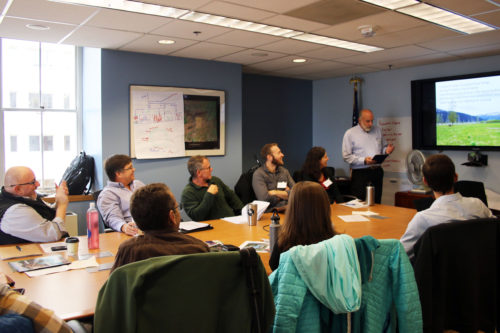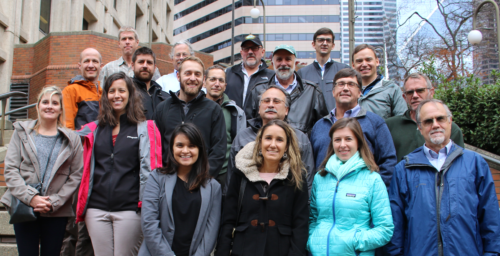Ecosystem Transformation: Resilience in the Face of Change
Yesenia Valverde · | Science Communication | Applying Science | 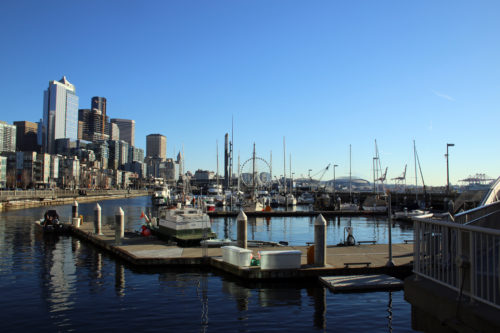
Last month, the IPCC released its special report, Global Warming of 1.5°C, a report requested by the Paris Agreement to detail the projected impacts of a 1.5°C rise in global temperature. It is of crucial importance to note that, according to the report, we as a global society are not currently on track to maintain warming below 1.5°C. Sobering, the report is an immediate call to action. As has been the case throughout Earth’s history, with a shift in the climate regime comes subsequent shifts in the physical environment; a result of the interconnected nature of our world. In today’s Anthropocene, however, such shifts are already happening at an unprecedented rate and scale, and will continue to do so well into the future. Having profound implications for ecosystems around the world as communities, interactions, and processes are altered in different ways, climate change presents an unprecedented challenge.
This phenomenon of ecological transformation was identified by The American Fisheries Society and The Wildlife Society as a top-priority focus in natural resource management. A team of experts from around the country was promptly assembled and tasked with synthesizing current knowledge into publications aimed for broad dissemination. IAN, of course, was part of that team. On November 13th, Bill Dennison and I travelled to Seattle, Washington for the three-day workshop, organized by Abigail Lynch and Laura Thompson of the US Geological Survey National Climate Adaptation Center, that would kick-off this effort. IAN’s most recent work with the USGS was the Ecological Drought newsletter series, an ambitious project that collated ecological and management knowledge across the country.
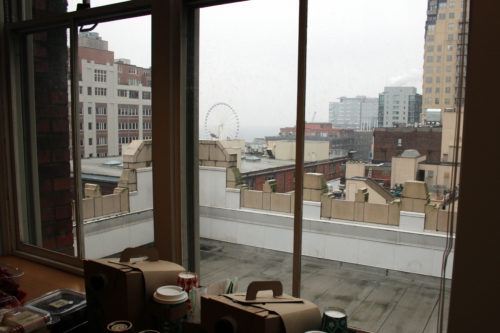
The workshop took place at the Northwest Regional Office of the National Park Service, located in the center of downtown Seattle, with the Pacific Ocean and Pike Place Market only a short walk away. Fueled by the famous Seattle caffeine, participants kicked off the workshop by launching into speed presentations that provided an overview of the vast range of issues and challenges associated with ecosystem transformation. Many rooted in firsthand experience of particular case studies, the presentations set the foundation for the productive conversations that would take course throughout the three-day workshop, spanning topics from coupled human/natural systems and social equity in conservation to taking action in the face of the uncertainty of ecological tipping points. Drawing from the experience of a previous USGS synthesis workshop in Bozeman, MT, the team set forward in clearly defining the process of ecosystem transformation, identifying its critical issues, and laying out a path for the future.
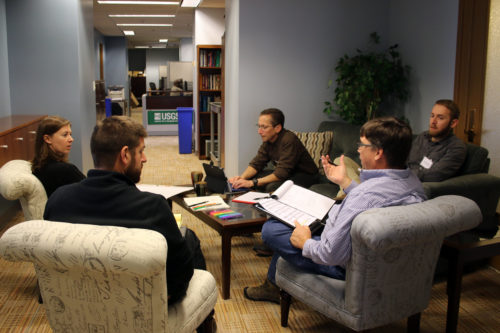
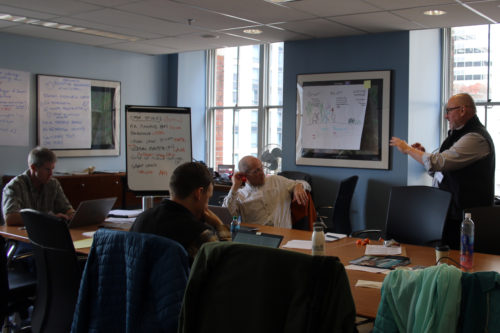
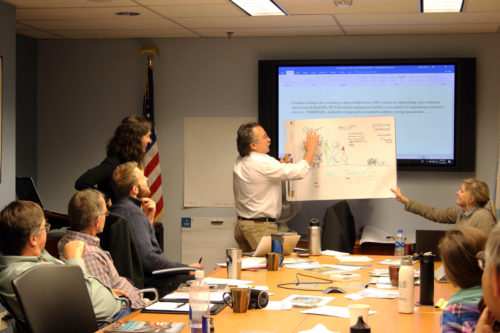
Frequent breakout sessions and a conveniently spacious office allowed for small groups to collaboratively produce text and draft sketches that they would then bring back and present to the entire group. From a vague idea of the science communication product that the team wanted to create emerged the topics that breakout groups would focus on: providing context, framing the issue, engaging decision makers. The important discussions that followed, as well as refined versions of the text and diagrams created within the breakout groups, make up the four-page workshop newsletter that is currently in the works. Stay tuned to IAN Press for its release! Since the workshop, participants have conferred biweekly as they work towards co-producing two peer-reviewed publications as well.
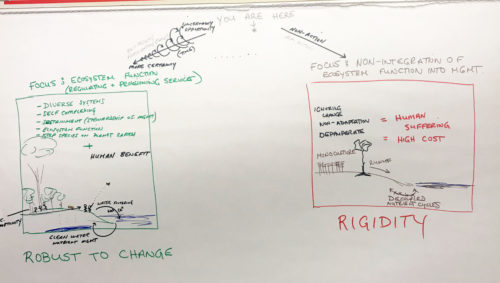
After having necessary conversations about the importance of communicating this science effectively to policymakers, it became even more clear that we are at a pivotal moment in history. If we are challenged as a society by the feat of limiting warming to only 1.5°C, then we must face the reality of the impacts that our ecosystems will experience and prepare for how to best manage them. To synthesize our discussions and conclude the workshop in a typical IAN fashion, Bill wrote and performed lyrics to David Bowie’s very relevant song, “Changes.”
Ch-Ch-Changes
16 Nov 2018
William C. Dennison
Still don't know what we were waitin' for
And our time was runnin' wild
Ecosystem transformations and
Every time we thought we'd got it made
It seemed the taste was not so sweet
So we turned to face reality
And we just caught a glimpse
How the future must be for us
It’s much too fast to take that test
Ch-ch-ch-ch-changes
Turn and face the strange
Ch-ch-changes
Don't want to diminish this earth
Ch-ch-ch-ch-changes
Turn and face the strange
Ch-ch-changes
There's gonna have to be a different world
Time may change us
But we can't trace time
Mmm, yeah
We watch the ripples change their size
But never leave the stream
Of warm impermanence
And so the years float through our eyes
But still the years seem the same
And these ecosystems that we spit on
As climate is changing our world
Are immune to our resistance efforts
We’re quite aware of what they're goin' through
Ch-ch-ch-ch-changes
Turn and face the strange
Ch-ch-changes
Don't tell us it is all for naught
Ch-ch-ch-ch-changes
Turn and face the strange
Ch-ch-changes
Where's your shame?
You've left us up to our necks in it
Time may change us
But we can't trace time
Strange fascinations fascinate me
Ah, changes are takin'
The pace we're goin' through
Ch-ch-ch-ch-changes
Turn and face the strange
Ch-ch-changes
Ooh, look out you ecologists
Ch-ch-ch-ch-changes
Turn and face the strange
Ch-ch-changes
Pretty soon now we’re gonna get older
Time may change us
But we can't trace time
I said that time may change us
But we can't trace time.
